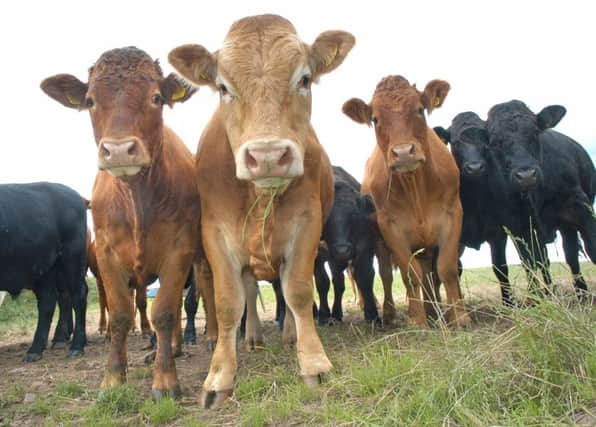Brexit will make life difficult for our vets


The current BVA president, Simon Doherty, is from Northern Ireland and the challenges Brexit will bring are the backdrop to his time representing all UK vets, from research and public sector through large animals to companion animals.
Like farming, Brexit will bring many unexpected challenges for the profession, and it struck me that regardless of the type of trade deals that finally emerge vets will be in the front line. They, in many ways, will confirm whether moving away from the certainty of the single market to unknown trading relationships can deliver the better future Brexit advocates promise
Advertisement
Hide AdAdvertisement
Hide AdTrade is on the basis of trust. In the EU single market, because we all now follow common rules and standards, that is taken for granted. That means we can export to and buy from any country in the EU with minimal paperwork. Beyond that trade is on the basis of certification. This may not be of every consignment, but there will be protocols on health and other standards to be decided, with spot checks at a level set by the importing country. The scale of this was clear in the years of negotiations it took to reach an export deal with China. The same applied to the tortuous negotiations to have the BSE bans lifted.
The other side of this coin is that vets will also be our defence against poor quality food being imported to the UK. Proof of this is the battle there has been for many years between Brazil and the EU over standards in its meat industry. These have never been resolved, but just kept at bay. For the post-Brexit UK there will be questions over growth promoter enhanced beef and chlorine-washed chicken from the US, GM-fed meat from Asia and continuing battles with Brazil over salmonella and other controls. The government says it will enforce high standards, but only vets can do that when it comes to imports. That will mean costly and time-consuming overseas visits to check standards.
This all puts vets on the front line in the trade battle, and hopefully the government at Westminster realises that. Its planning for Brexit is lamentable and over the veterinary profession it does not seem to understand the basis laws of supply and demand. It has not, to date, made the veterinary profession one that will receive special treatment over the rights of people from EU member states to work in the UK. This will deny us access to well qualified vets from other parts of Europe, just when demand is rising. Ending this anomaly would help. However it would not get over the fundamental problem that the lack of a free trade deal with our biggest export market, the EU 27, will bring new red tape for which there has been no real planning.
It is probably just coincidence, but as the UK government talks about all the trade deals it will do around the world after Brexit, the EU is fast turning years of negotiations into new deals. This week it confirmed a new trade and investment deal with Vietnam, which will create opportunities for food; it has also secured a new deal with Singapore and the Commission and Japanese authorities have said they want to move quickly to finalise a free trade deal, already agreed in principle. This may look like the EU working to seal deals before the UK is free to negotiate.
Advertisement
Hide AdAdvertisement
Hide AdIn reality these are the outcome of negotiations that began back in 2014 when the current Commission began its five-year term. Its commitment then was to use trade to drive economic recovery and trade deals are the result. It wants as many as possible in place before the Commission’s term ends next May. This is the driver rather than any wish to make life more difficult for the UK. This underlines the scale of competition the EU-27 will be after Brexit, when as the world’s biggest agri-trader it will be head-to-head with the UK in every market. The farm commissioner, Phil Hogan, said that what the EU is using to develop export markets is its food quality and reputation for culinary excellence. This is the track the EU is now on; it has already moved away from the UK and its concerns about post-Brexit trade deals.